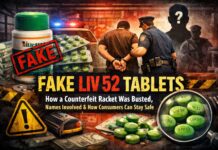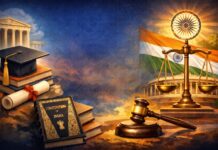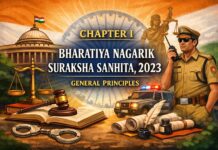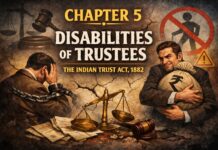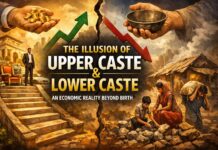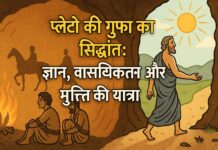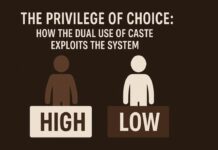Introduction:
Bhima Koregaon is a small village situated in the district of Pune, Maharashtra, India. This place has historical significance as it was the site of a battle fought between the British East India Company and the Peshwa forces in 1818. The battle is celebrated by the Dalits (formerly known as Untouchables) as it is believed that a significant number of soldiers who fought on the British side were from the Dalit community. In recent years, Bhima Koregaon has been in the news for the violence that erupted there on January 1, 2018, during the commemoration of the 200th anniversary of the battle.
Historical Background:
The Battle of Bhima Koregaon took place on January 1, 1818, between the British East India Company and the Peshwa forces. The Peshwa was the ruler of the Maratha Empire, which was one of the most powerful empires in India at that time. The British East India Company was expanding its influence in India, and the Maratha Empire was one of its biggest obstacles.
The British had recruited soldiers from various communities, including the Dalits, to fight against the Peshwa. The Dalits, who were considered to be at the bottom of the caste hierarchy, saw this as an opportunity to fight for their dignity and prove their worth. The battle of Bhima Koregaon was significant because it was one of the rare instances where the Dalits fought alongside the British against the upper-caste Marathas.
In 1927, Dr. B.R. Ambedkar, a prominent Dalit leader and the architect of India’s constitution, visited the site of the battle and paid tribute to the Dalit soldiers who had fought there. Since then, the Dalits have been celebrating the victory of the British over the Peshwa as a symbol of their struggle against caste oppression.
The 2018 Bhima Koregaon Violence:
On January 1, 2018, thousands of Dalits gathered at Bhima Koregaon to commemorate the 200th anniversary of the battle. The event was organized by the Elgar Parishad, a group of Dalit and left-wing activists. The event was attended by several prominent Dalit leaders, including Jignesh Mevani, a young Dalit leader from Gujarat, and Prakash Ambedkar, the grandson of Dr. B.R. Ambedkar.
The event was peaceful until some right-wing groups, including the Hindu Ekta Manch and the Shiv Sena, started protesting against it. The right-wing groups accused the Dalits of celebrating the defeat of the Marathas, who were considered to be the symbols of Hindu pride. The tension escalated, and violence erupted in the afternoon, leading to the death of one person and injuries to several others.
The police later arrested several activists, including Sudhir Dhawale, Rona Wilson, Surendra Gadling, Mahesh Raut, and Shoma Sen, alleging that they had links with Maoist groups and were responsible for organizing the event and inciting violence. The arrests were widely criticized by civil society groups, who saw them as an attempt to silence dissent and suppress the voices of the marginalized.
The Bhima Koregaon Case:
The arrests of the activists in the aftermath of the Bhima Koregaon violence led to the Bhima Koregaon case, which is one of the most significant cases in recent times in India. The case has been described as a crackdown on dissent and an attack on civil liberties by the Indian government.
The Bhima Koregaon case involves the arrest and detention of several activists, scholars, and lawyers who were associated with the Elgar Parishad event. They were accused of promoting enmity between different communities, conspiring to assassinate the Prime Minister, and having links with Maoist groups.
The case has been controversial, with many civil society groups and activists alleging that the charges are politically motivated and that the activists were targeted because of their criticism of the government. The case has also highlighted the growing concerns about the shrinking space for dissent and freedom of expression in India.
The Bhima Koregaon case has been mired in legal battles, with several activists and lawyers filing petitions challenging the validity of the arrests and the legality of the charges. The case has also seen several twists and turns, with the prosecution relying heavily on electronic evidence, which has been challenged by the defense.
Recently, in February 2021, the National Investigation Agency (NIA), which took over the case from the Pune Police, filed a charge sheet against 16 people, including nine activists who were arrested earlier. The charge sheet was criticized by several civil society groups, who alleged that it lacked evidence and was politically motivated.
Conclusion:
The Bhima Koregaon case is a complex and controversial issue that highlights the challenges facing India’s democracy. It has raised concerns about the misuse of power by the government, the shrinking space for dissent and freedom of expression, and the growing polarization between different communities.
The case has also brought to the fore the issue of caste oppression, which continues to plague Indian society despite constitutional provisions and efforts by civil society groups. The celebration of the Battle of Bhima Koregaon by the Dalits is a testament to their struggle against caste oppression and their desire for dignity and equality.
As the Bhima Koregaon case continues to unfold, it is essential for the Indian government and civil society groups to uphold the principles of democracy, human rights, and the rule of law. The case should be seen as an opportunity to strengthen India’s democratic institutions, protect the rights of marginalized communities, and promote social justice and equality.


